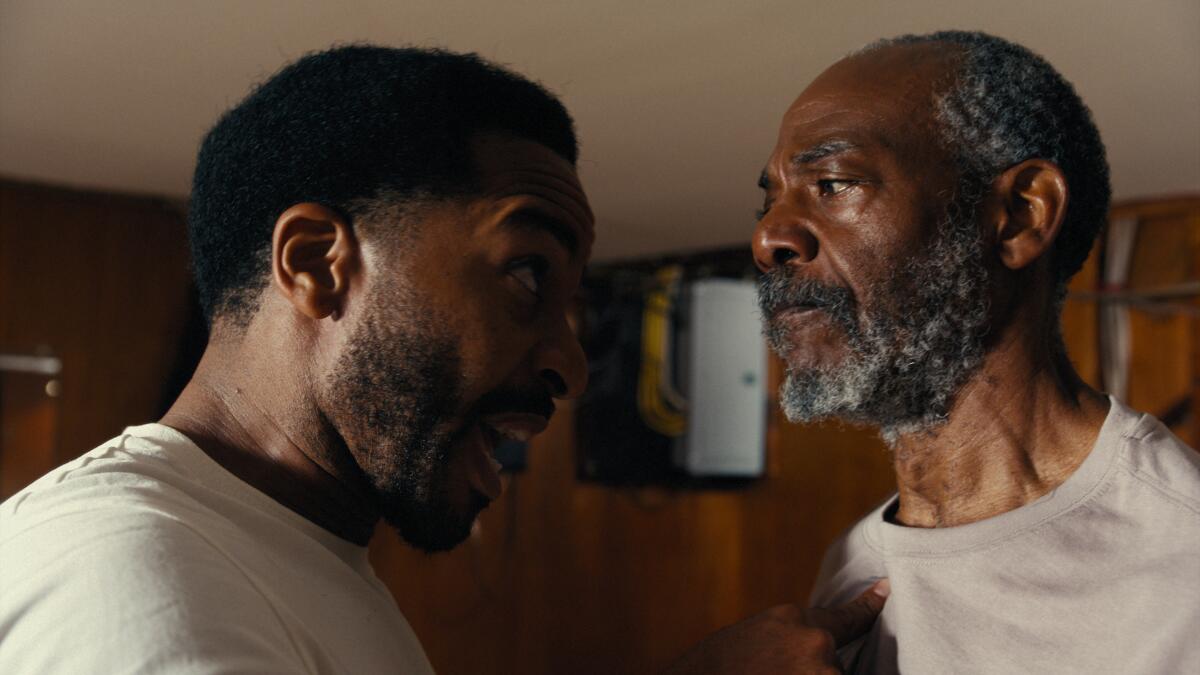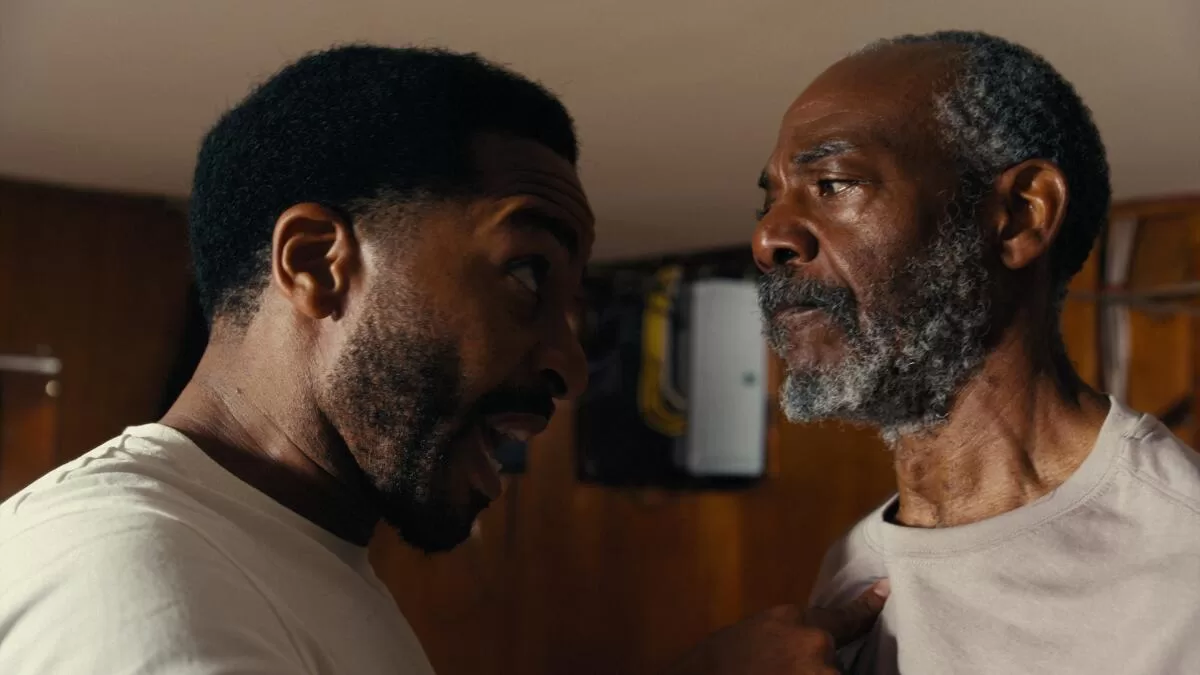As an anguished artist and family man pushed to confront unresolved pain, the great André Holland moves through “Exhibiting Forgiveness” like someone who doesn’t just work with paint, but would just as soon submerge himself it, like an immersion chamber, if it kept his wounds from opening further.
In artist Titus Kaphar’s emotionally knotty, semi-autobiographical directorial debut about hurt and resilience — and, of course, making art — we get a refreshingly bone-deep view of how someone can be saved by the act of creation, yet flummoxed by its therapeutic limitations. Because while the talented Tarrell (Holland) can bypass the nightmares that jolt him awake by working in his home studio, where he crafts large-scale neighborhood scenes both enveloping and disquieting, the sudden re-emergence of his estranged father La’Ron (John Earl Jelks) will require more than just his familiar outlet of brushstroke and canvas.
Tarrell, his singer-songwriter wife Aisha (Andra Day) and their preschool-age son Jermaine (Daniel Berrier) head to his old stomping grounds to help his spirited mom (inner-light virtuoso Aunjanue Ellis-Taylor) pack for a move. But the unexpected appearance of his father at the scene is, to judge by the coiled anger on Holland’s face, as if someone had defaced one of his works with an alien hue.

André Holland, left, and John Earl Jelks in the movie “Exhibiting Forgiveness.”
(Roadside Attractions)
A recovering addict in the grip of feeling like a changed man, La’Ron wants another chance with his son. To make the ambush even more inexplicable for Tarrell is that his devout mom is in favor of this, too, despite being just as much a victim of La’Ron’s chaos as Tarrell was. But his parents’ armor is biblical faith, especially in the power of forgiveness, which to their son is no cure-all but rather a hypocritical salve that ignores the root of the sin and the damage it has caused.
The pivotal day of Tarrell’s trauma is threaded throughout the film in extended flashbacks, when a scared boy (a heartbreaking Ian Foreman) discovers the extremes of his drug-using dad’s toxic behavior, and we see how great Jelks is at believably embodying the harder, uglier version of the broken-but-unbowed man now trying to make amends. What makes the impasse especially affecting is how Jelks and Holland subtly evoke how alike yet different two closely connected men with brutal pasts can be.
For a first-time filmmaker, Kaphar confidently dives into his story’s complications, maintaining a texture even when certain parts slip into melodrama. What’s also heartening is his conviction in letting a scene play through its natural emotional arc — especially the first cautious showdown between reunited father and son — and not interfering too much with what his stellar cast can do. When Kaphar, aided by cinematographer Lachlan Milne’s delicate blend of warmth and cool, adds an imaginative touch, as when Tarell has visions of his boyhood self as a sorrowful presence alongside his paintings, the moment clicks with soulful recognition instead of feeling analytically indulgent. (Kaphar’s paintings for the film can be seen at the Gagosian in Beverly Hills through November 2.)
But it’s in Holland’s outstanding portrait of the artist as a man trapped between young and old, between past and future, that sets “Exhibiting Forgiveness” apart as a movie about the creative process. It’s telling that at one point, having just glimpsed a flashback of La’Ron‘s crack paraphernalia, we then see Tarell, at his lowest moment, reach for his paint supplies like someone with a comforting fix in mind.
Art is constructive, whereas drugs annihilate, and religion can be exploited. And yet the rich takeaway of “Exhibiting Forgiveness” is that artmaking is a journey, not necessarily a solution. In watching Tarell soldier on while he creates, learning what his art should be as he wrestles with the gift of compassion, we come to understand what’s so aesthetically resounding in life’s gnawing incompleteness.
‘Exhibiting Forgiveness’
Rated: R, for language and brief drug material
Running time: 1 hour, 57 minutes
Playing: In wide release Friday, Oct. 18
